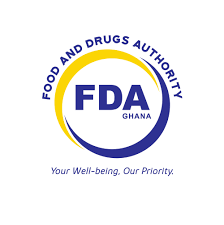The Chief Executive Officer (CEO) of the Food and Drugs Authority (FDA), Prof. Kwabena Frimpong-Manso Opuni, has raised concerns over poor remuneration within the Authority, warning that the situation is pushing many highly skilled professionals to resign.
Addressing participants at the FDA’s 2024 Annual Stakeholder Meeting, he stated that staff of the Authority are among the worst paid in the country and remain disadvantaged under the single spine salary structure.
“FDA staff are among the worst-paid workers in Ghana. They are not properly paid under the single spine. Last year alone, about 48 left for better-paying jobs in well-resourced organisations”
Prof. Kwabena Frimpong-Manso Opuni, CEO of FDA
According to him, more than 67 employees had resigned over the last five years due to poor conditions of service. He expressed worry that the continuous loss of experienced workers could weaken the Authority’s mandate of safeguarding public health.

Prof. Opuni urged the Fair Wages and Salaries Commission and the Ministry of Finance to expedite action on the FDA’s new conditions of service.
“Only 18 out of several staff recruitment requests have been cleared by the Ministry, with the rest supported through internally generated funds,” he told the gathering, revealing that staff recruitment processes had also been constrained by limited clearances.
The meeting, held under the theme “Improving Productivity and Efficiency Through Digitalisation and Staff Commitment,” brought together representatives from the Ministries of Finance and Health, exporters, importers, and community leaders.
Strengthening Food Hygiene
Providing updates on initiatives, the Head of Planning, Monitoring, and Evaluation at the FDA, Afua Amoako-Mensah, disclosed that the Authority is scaling up its Street Food Vending Permit Scheme to boost compliance with food hygiene standards.
“In the year under review, we trained 3,510 food vendors and issued 1,094 permits. However, many vendors failed to complete the process by securing health certificates despite follow-up reminders”
Afua Amoako-Mensah, FDA Head of Planning, Monitoring, and Evaluation

She emphasised that public health risks persist when vendors fail to comply fully, and called for stronger collaboration with local assemblies to enforce hygiene standards.
“The FDA is working closely with border security agencies to clamp down on non-compliant products entering the country,” Mrs. Amoako-Mensah said, further revealing that the Authority has intensified its collaboration with other institutions to address the inflow of substandard products.
She explained that the initiative forms part of wider efforts to strengthen monitoring systems, protect consumers, and support businesses that follow proper regulatory standards.
Urgent Salary Reforms
Prof. Opuni underscored that without improved remuneration, the Authority risks losing more skilled personnel to better-paying institutions.
“Highly trained staff continue to leave because they cannot survive on the salaries offered,” he said, stressing that the FDA’s role in safeguarding public health requires not just equipment and reforms but also motivated professionals.

“The FDA cannot achieve its mandate if this trend continues,” he warned, and called on all relevant stakeholders to recognise the urgency of approving the Authority’s revised conditions of service to ensure staff retention and strengthen productivity.
As Ghana continues to battle the influx of counterfeit products, unsafe foods, and unregulated imports, the FDA has positioned itself as a critical institution in protecting citizens.
However, the warning from its leadership highlights that the Authority’s ability to sustain these efforts depends on addressing the very challenge of poor salaries that undermine staff morale.
READ ALSO: Ghana Gas Assures Completion of Atuabo Plant Maintenance Within 10 Days























